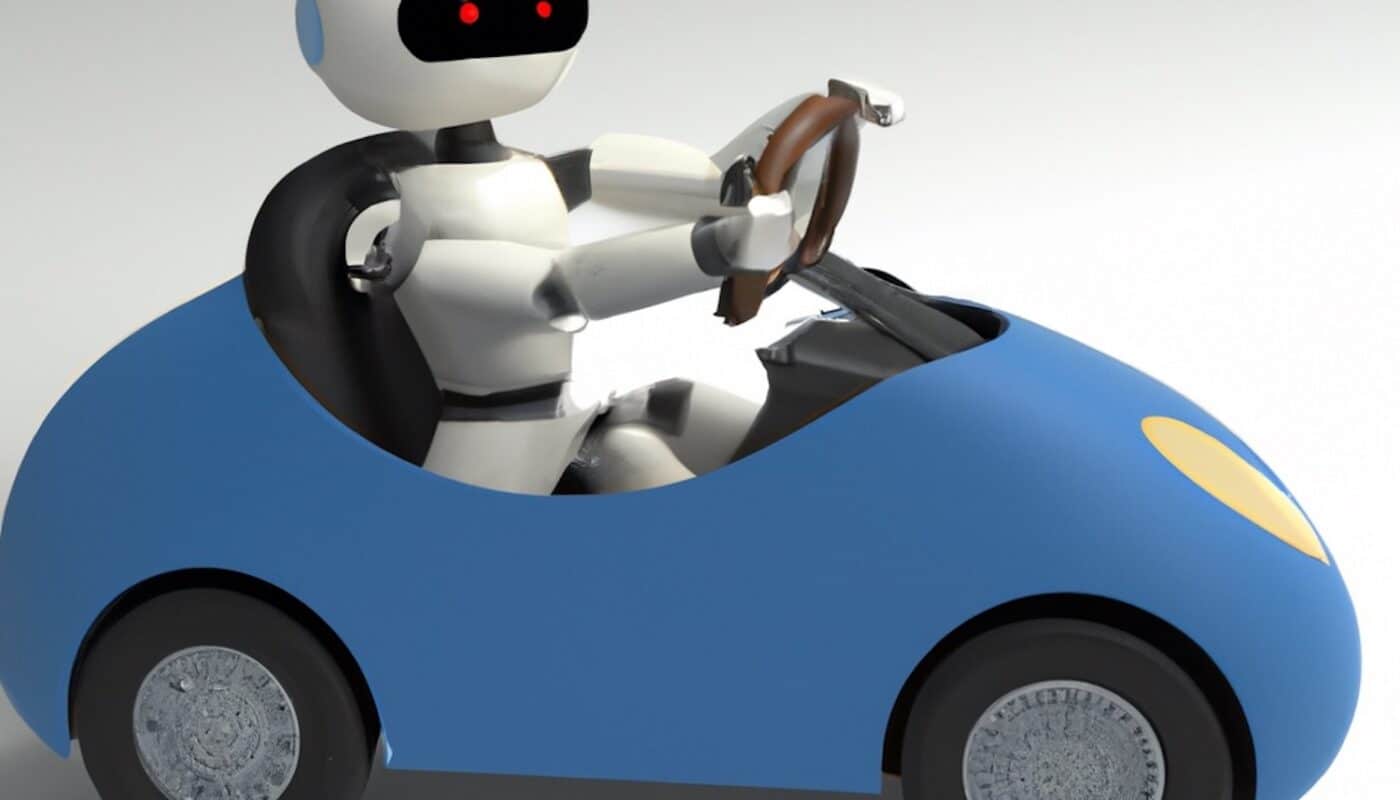The automotive sector is undergoing a major transformation with the emergence of artificial intelligence (AI). Carmakers and technology companies are engaged in a relentless race to develop innovative technologies capable of making vehicles safer, greener and more efficient. In this article, we look at the main applications of artificial intelligence in the automotive industry and their implications for society.
Autonomous driving takes shape thanks to AI
Autonomous driving is undoubtedly one of the best-known applications of artificial intelligence in the automotive sector. This involves entrusting the driving of the vehicle to a computer system capable of making decisions in real time by analyzing its environment using sensors and cameras. Autonomy levels can vary from system to system, with some systems only assisting the driver in certain maneuvers (automatic braking, lane-keeping, etc.).
Autonomy levels
There are currently five levels of autonomy, classified from 0 to 5:
- Level 0: No assistance, the driver has full control of the vehicle.
- Level 1: Partial assistance, such as cruise control or automatic braking.
- Level 2: Partial automation, with several systems operating simultaneously (e.g. lane keeping and distance control).
- Level 3: The vehicle monitors the environment, but the driver must be ready to intervene at any time.
- Level 4: Complete autonomous driving, but only under certain conditions (defined geographical areas, favorable weather conditions, etc.).
- Level 5: Fully autonomous driving, with no human intervention required.
Today, vehicles equipped with the most advanced levels of autonomy are still in the experimental phase. However, they are expected to account for a significant share of the automotive market in the years to come.
AI improves road safety
In addition to enabling autonomous driving, artificial intelligence is also helping to improve road safety. Intelligent sensors and cameras constantly analyze driver behavior and traffic conditions to detect any dangerous situations and act accordingly.
Driver monitoring systems
Some vehicles are equipped with driver monitoring systems that analyze eye movements, head position and other parameters to determine whether the driver is attentive or showing signs of fatigue. If this is the case, the system can emit audible and visual alerts to prompt the driver to take a break or regain control of the vehicle.
Obstacle detection systems
Other devices can detect obstacles on the road in real time, such as pedestrians, cyclists or other vehicles, and take appropriate action (slowing down, changing course, etc.) to avoid accidents. These systems often use image processing and pattern recognition techniques to identify objects and predict their trajectory.
AI for energy efficiency
Artificial intelligence also plays an important role in improving vehicle energy efficiency. Carmakers are investing heavily in the development of electric and hybrid vehicles to reduce CO2 emissions and meet increasingly stringent regulatory requirements.
Intelligent battery management
Electric vehicles rely on rechargeable batteries whose range is often limited. Artificial intelligence systems can optimize battery management by adapting energy consumption to traffic conditions and driving style. This extends the vehicle’s range and reduces recharging times.
Optimizing consumption
Hybrid and electric vehicles can also benefit from intelligent consumption management systems that analyze navigation data, terrain and other parameters to optimize energy use. For example, the system may decide to favor electric mode in urban areas or during braking to save fuel and reduce pollutant emissions.
Artificial intelligence for personalization
Finally, artificial intelligence can also be used to develop personalized services for vehicle drivers and passengers. Connected cars are equipped with systems capable of recognizing user preferences and habits, and offering customized recommendations (itineraries, points of interest, etc.).
Intelligent personal assistants
Some manufacturers already offer intelligent personal assistants that help drivers organize their daily lives and journeys according to their needs and desires. These assistants can integrate voice command, facial recognition or geolocation functionalities to deliver a unique, personalized user experience.
In short, artificial intelligence is profoundly transforming the automotive sector, opening up new possibilities for improving vehicle safety, fuel efficiency and comfort. Technological advances in this field represent a real challenge for automakers, who must constantly innovate to remain competitive in a rapidly changing market.









